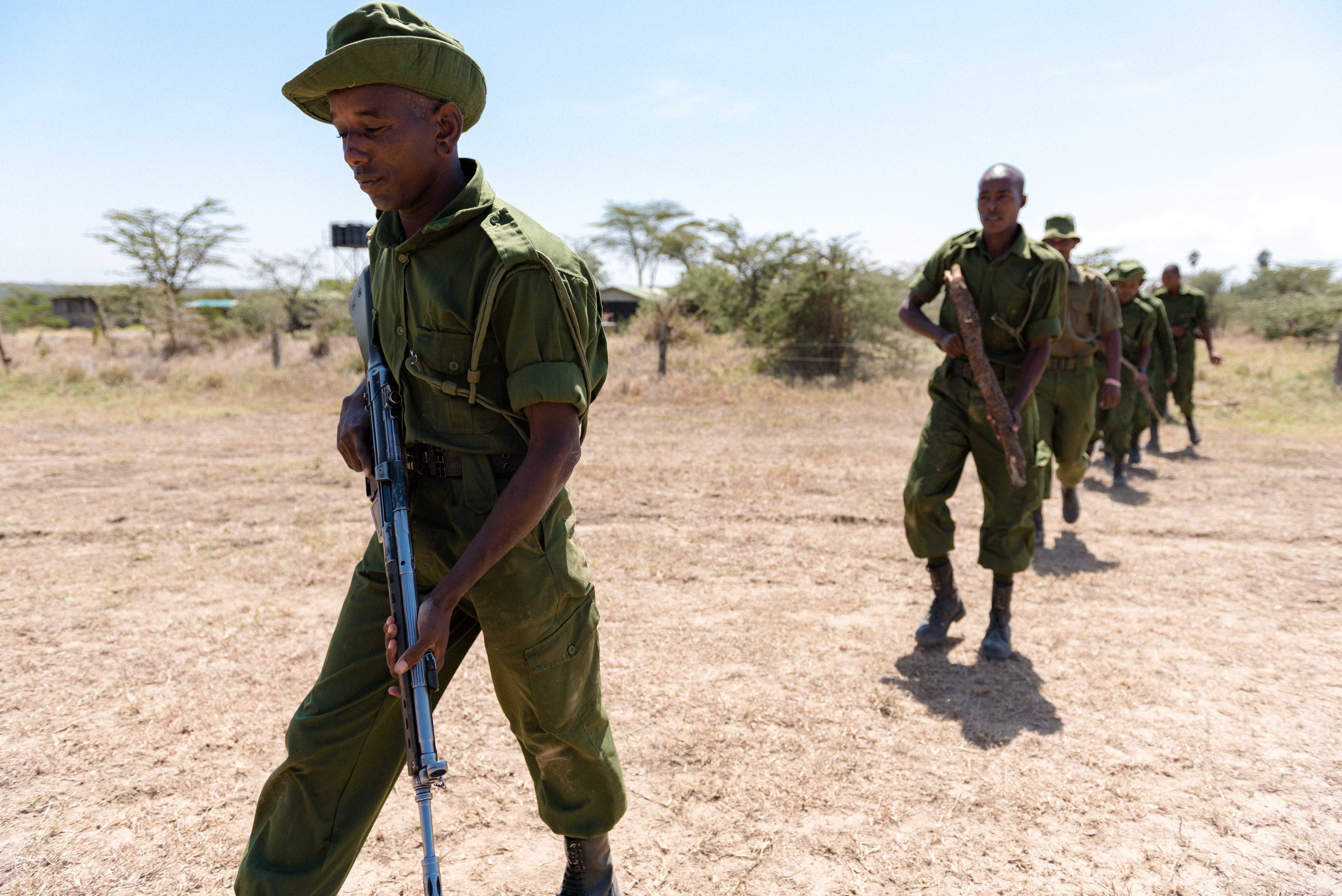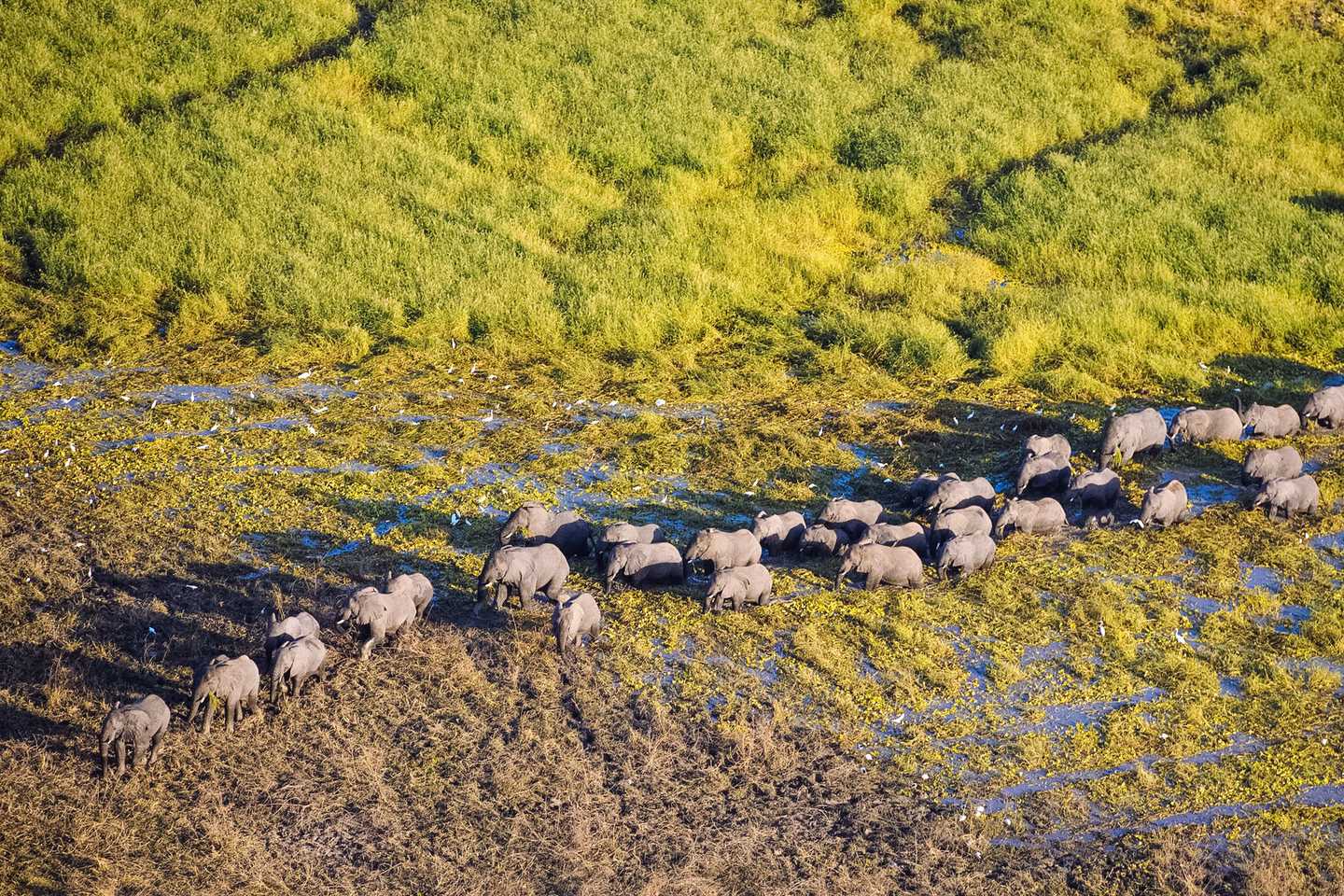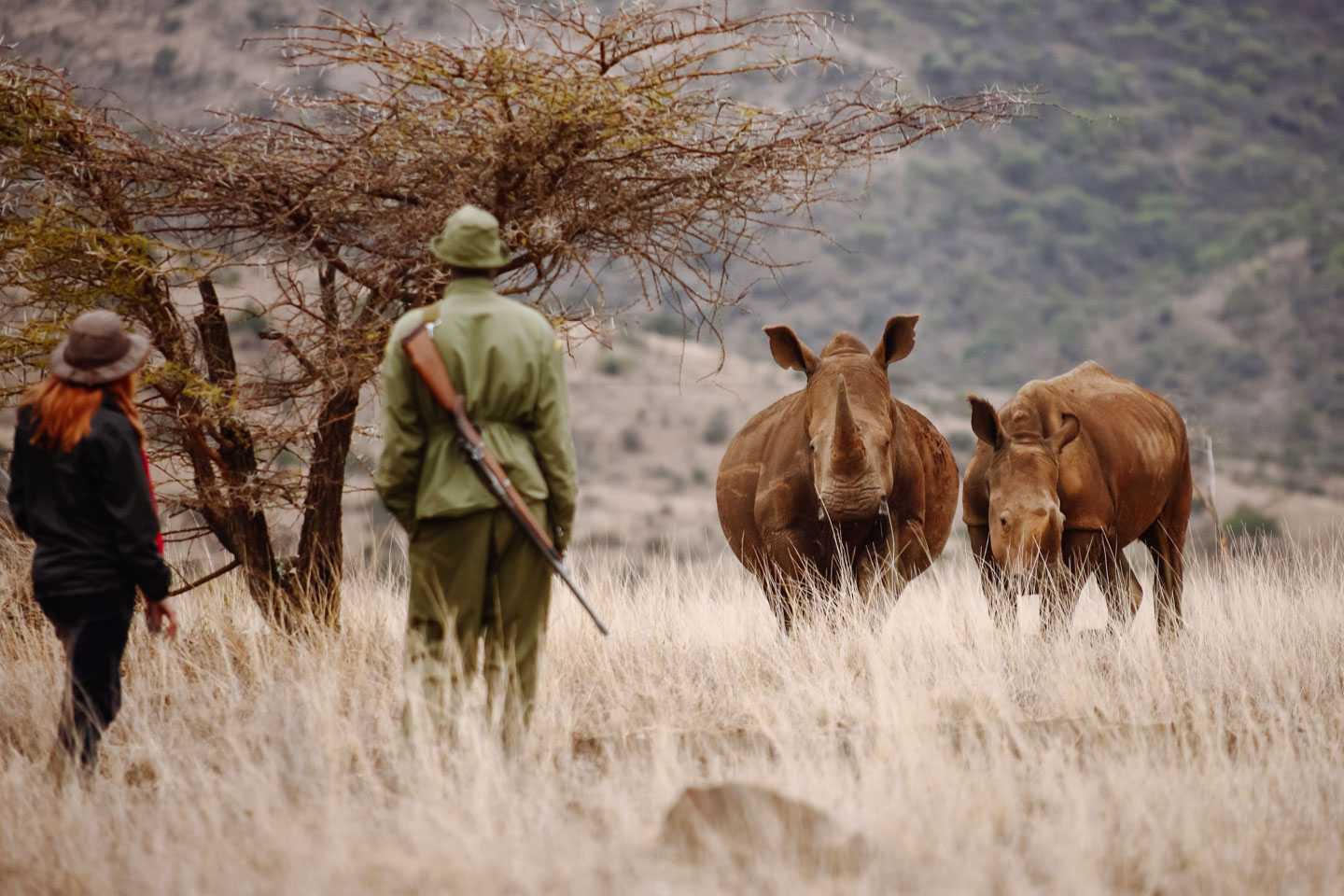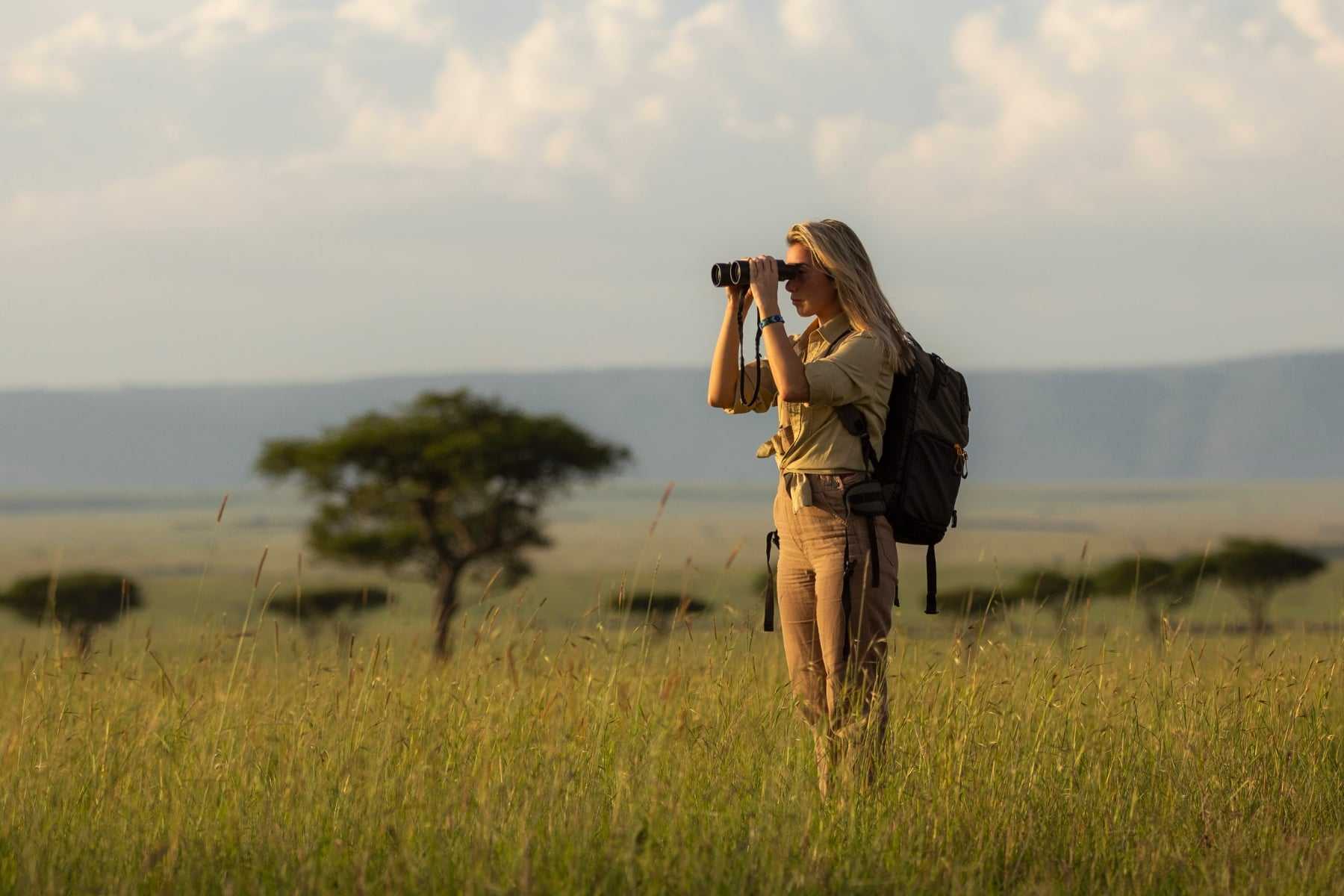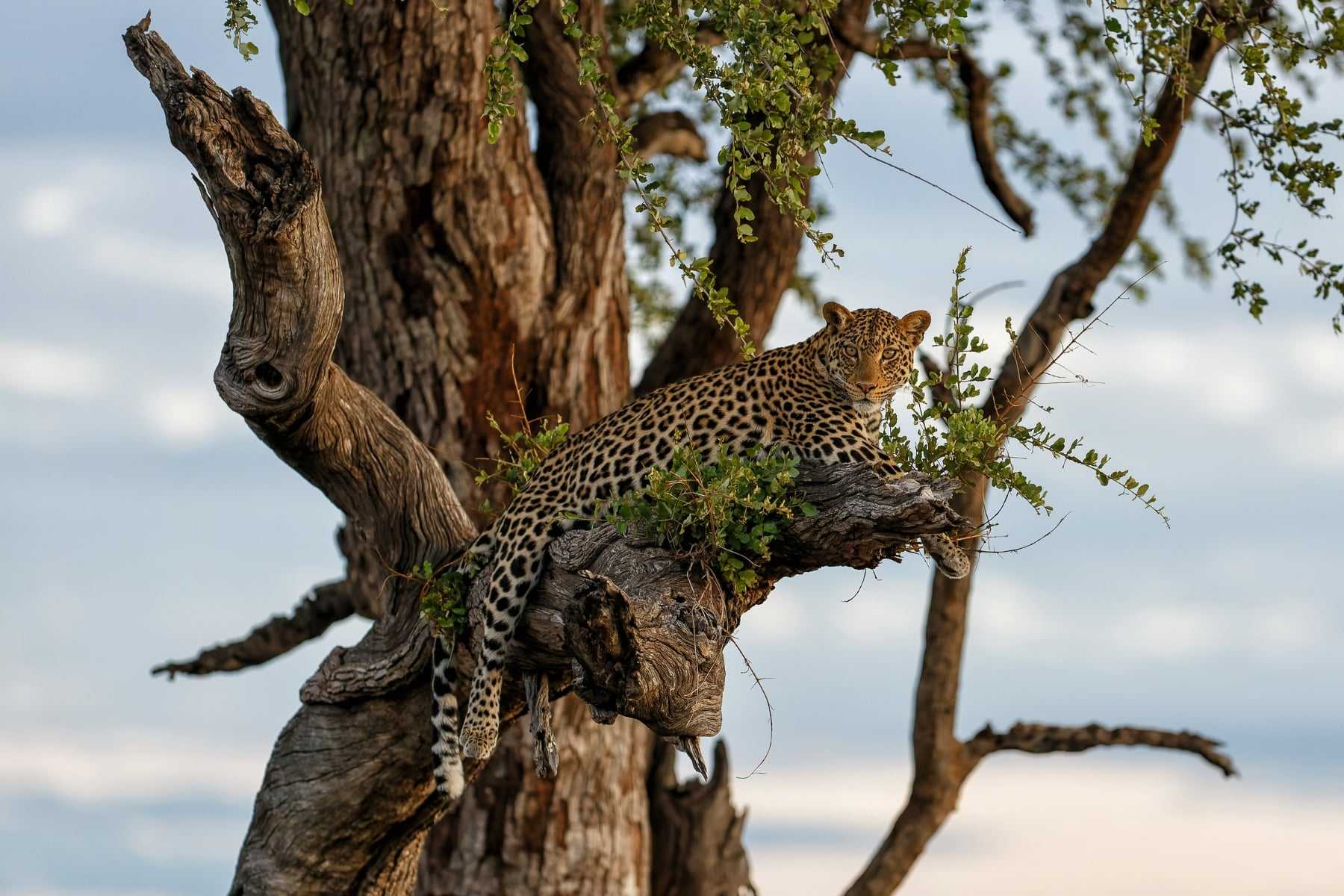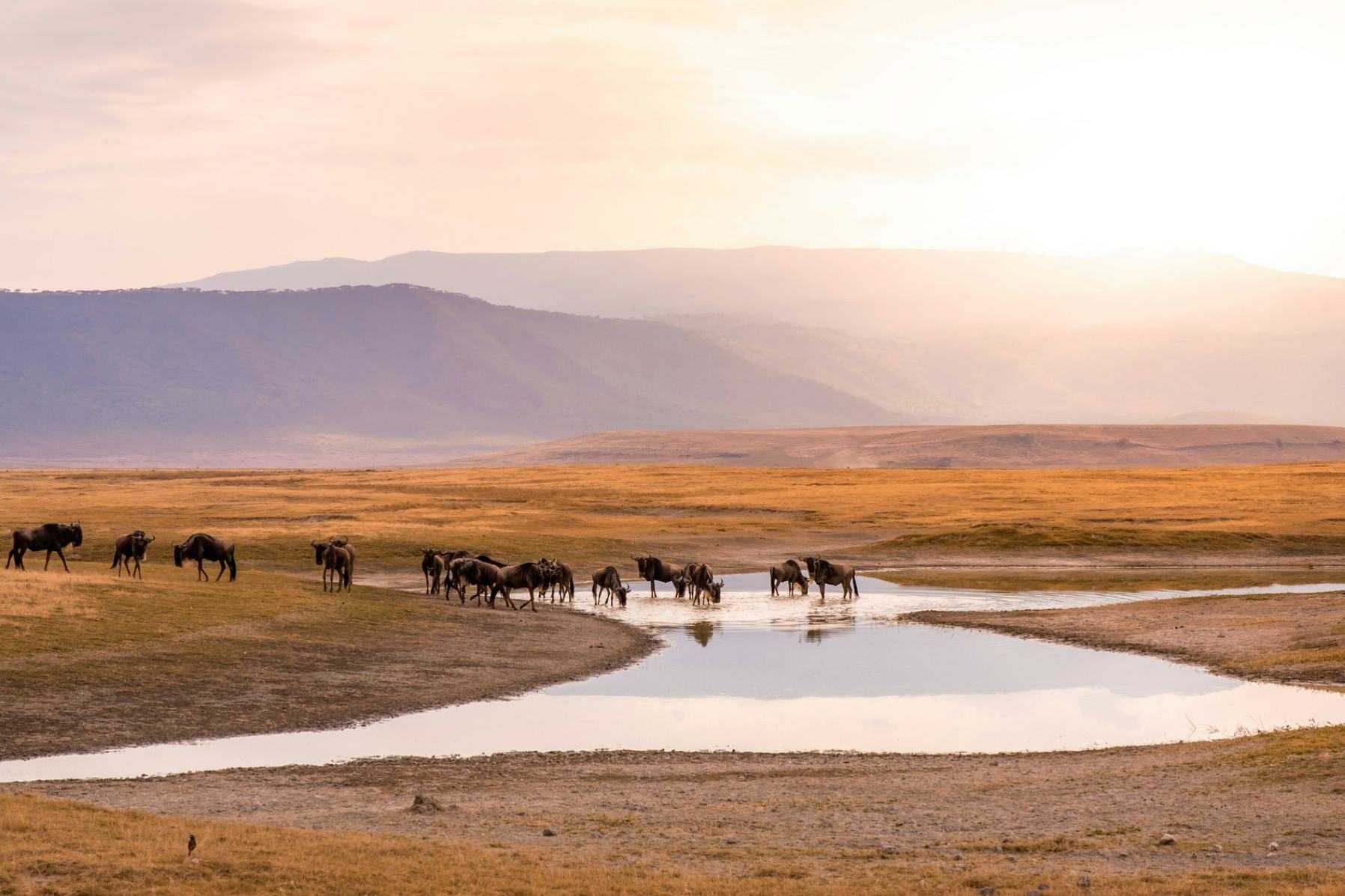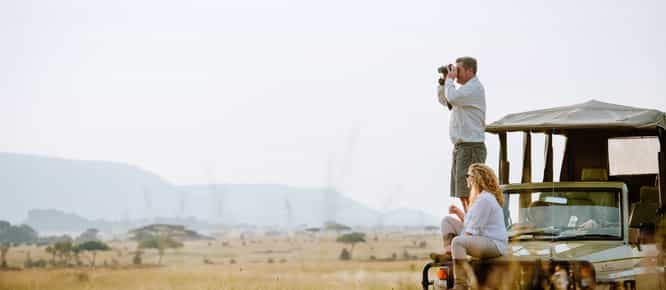The Rangers Behind the Wildlife Sightings
In Formula 1, you are likely to know and hear the names of the top drivers on the race track, but you might not think about the specialist team of engineers behind the scenes. Without this support, those internationally recognised names wouldn’t be where they are and it is the same within conservation. Without the rangers, organisations and specialists, our African wildlife simply would not be able to roam freely or survive the current levels of poaching. In this article, I want to appreciate and celebrate the devoted rangers who work behind the scenes every day to ensure the protection of Africa’s wildlife, making it possible for all of us to enjoy these incredible animals.
We are all driven by different inspirations but the overall one is that we need to have people on the forefront who fight against the injustices done to the environment and who are motivated by the desire to make the world a better place. – James Mwenda, Ranger at Ol Pejeta Conservancy
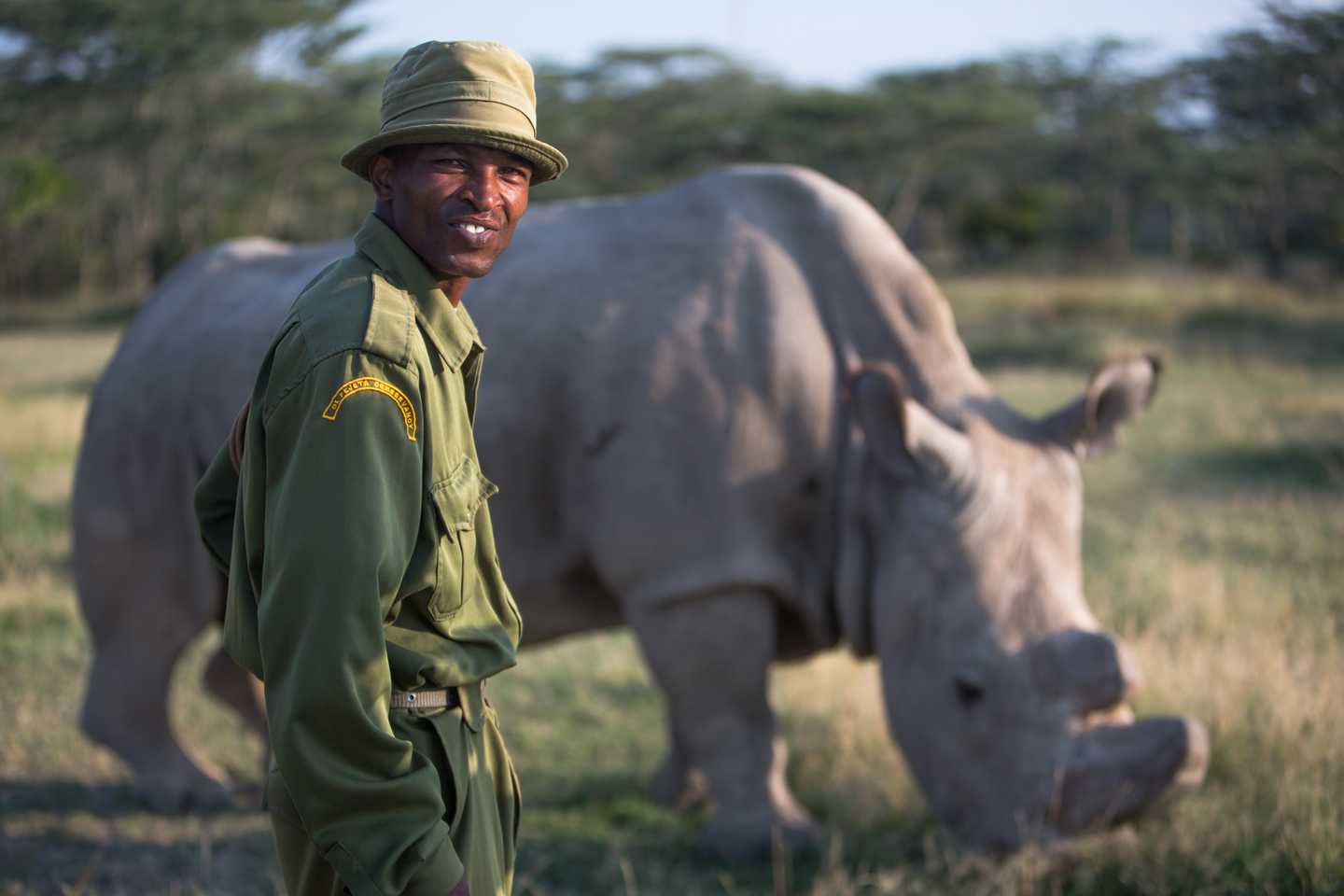
Zachary Mutai, Sudan’s caregiver at Ol Pejeta
Meeting the rangers at Ol Pejeta Conservancy, Kenya
Last year I travelled to Ol Pejeta Conservancy in Kenya to visit not only Sudan, the last male Northern White Rhino in the world, but also his team of rangers. I was able to talk to his dedicated rangers, Zachary Mutai and James Mwenda, and my experience was further enriched as I began to understand the people who enable these animals’ survival and the dedication, the training and the dangers they face on a daily basis to fulfil this job. These unsung heroes fight for the freedom of Africa’s most majestic animals, in a land overrun with poaching.
It is very emotional to realize that there are only a few hundred rhinos left in Kenya. It is a daily struggle to protect them. The struggle becomes hard to understand as you spend sleepless nights guarding and protecting what others want to kill. – James Mwenda
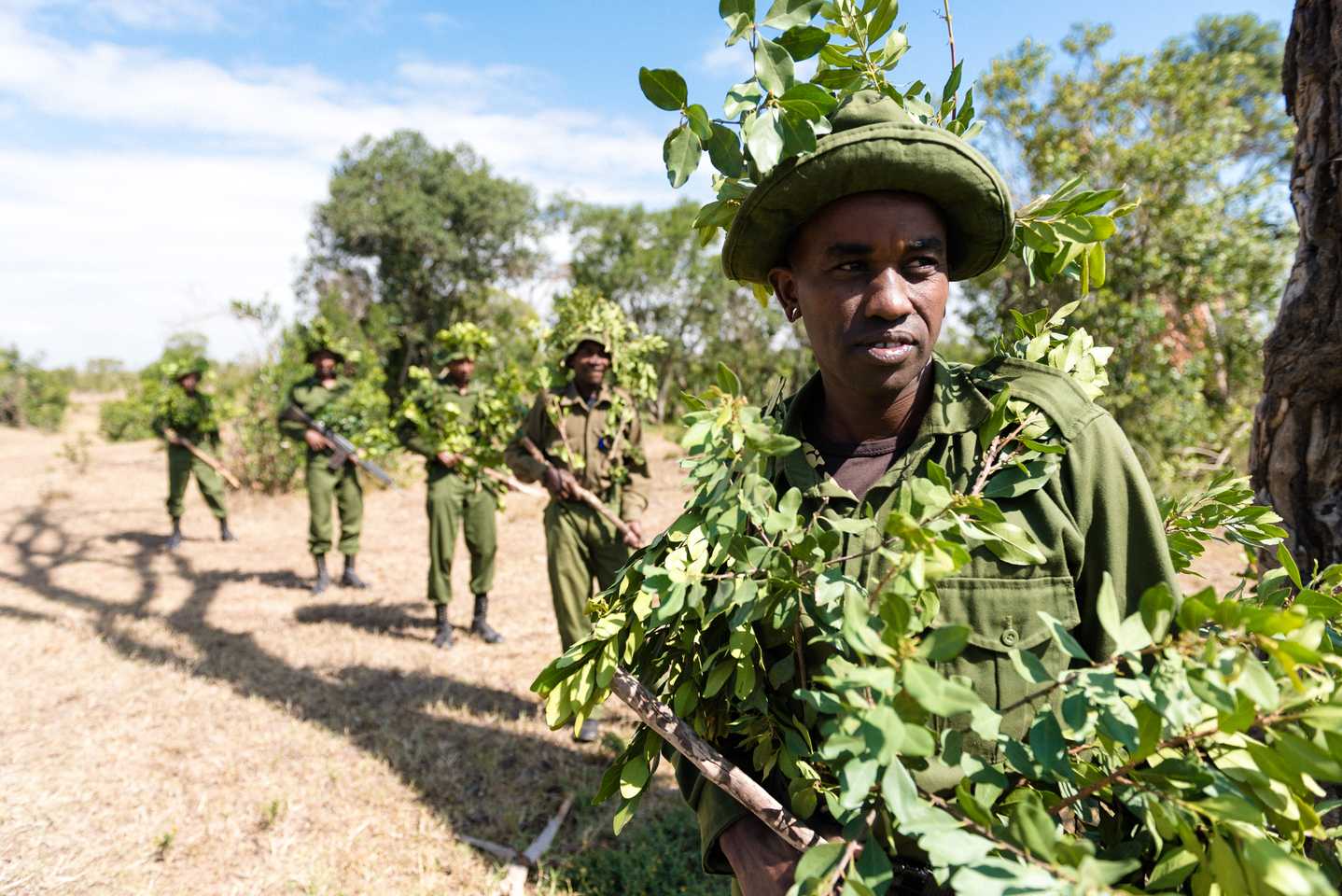
Ol Pejeta Conservancy Rangers
The life of a ranger
Their intention is simple: to protect different species to avoid extinction for future generations, but the work is not so straightforward. James Mwenda told me that rangers will usually work in 12 hour shifts, beginning at 6am and ending at 6pm. His average day will consist primarily of monitoring wildlife with the aim of determining their health, location and births – among other aspects of their wellbeing – as well as consistently searching for any emergent security threats on the conservancy.
The biggest challenges to rangers are poachers. – Zachary Mutai
Becoming a ranger is no easy feat, the training is extensive and gruelling as they must all ensure they can maintain the security of the wild animals and be prepared to encounter a variety of challenges in the bush. It’s not only poachers who can cause a threat to a ranger’s life though, they must also be ready to face the significant threat of hostile interactions with wildlife. Rangers in training will also be given psychiatric support to ensure they are mentally prepared for any traumatic experiences they may encounter in the field. Financial donations and grants make this high level training possible.
The rangers that transformed Chad’s Zakouma National Park
A rise in poaching in Chad in the early 2000s, resulted in a sharp decline in elephant and a complete wipe out of rhino in Zakouma National Park. African Parks, a conservation agency famous for transforming national parks to support wildlife, took on Zakouma in 2010 and began by championing the employment of rangers from local communities and ensuring they underwent extensive training. This move has cut the poaching in Zakouma impressively and the park has since reintroduced black rhino and watched the elephant population rise from strength to strength.
How is tourism assisting with education
The money brought in by tourism provides the greatest financial support for rangers, enabling the maintenance of the roads, fencing, equipment and vehicles.
With increasing interest in conservation and wildlife protection, tourists now wish to understand more of what goes on behind the scenes on safari and lodges are beginning to cater to this. Now visitors can not only meet the rangers and teams that protect the local wildlife, but they can also take part in experiences, such as rhino tagging, so as to better understand the work involved.
My greatest mission is to help ignite their minds to see that we need to do more to conserve wildlife. – James Mwenda
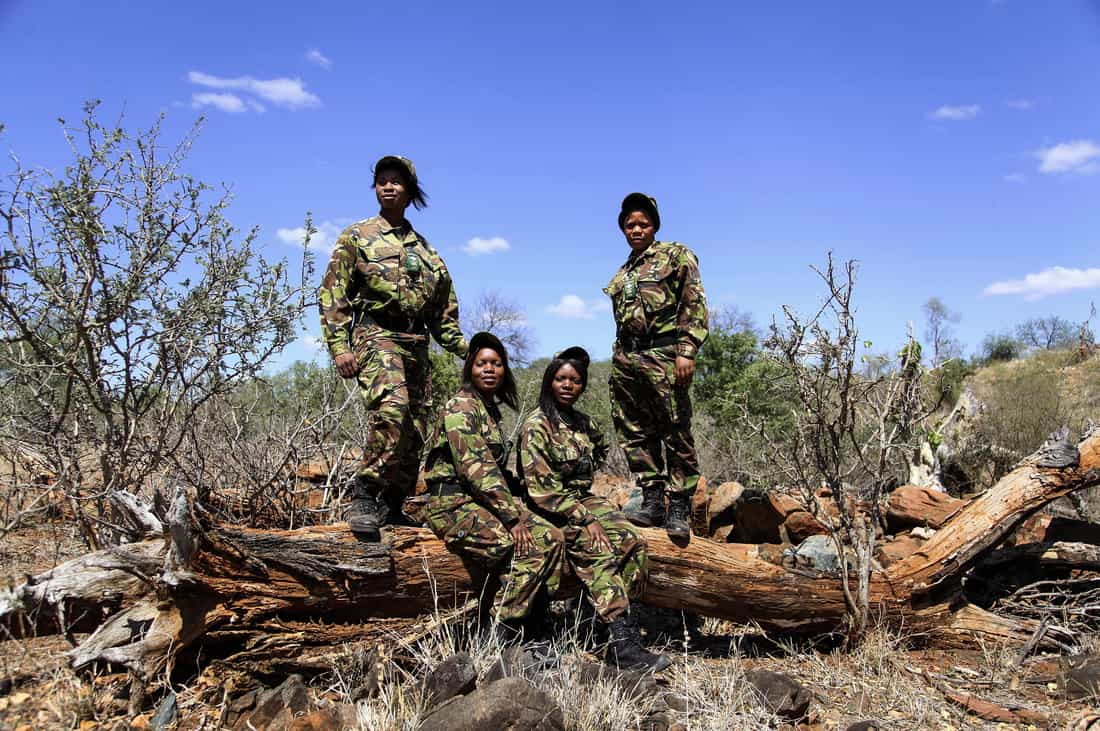
Black Mamba Anti-Poaching unit
At Pondoro Lodge, guests now have the opportunity to experience a tour with the Black Mambas, the famous all female Anit-Poaching team. On this tour, visitors will meet the women involved in the Black Mamba initiative and learn more about their daily efforts in seeking and destroying poachers camps, snares and any other wildlife dangers. By booking on this tour, guests are helping to support this work and enable the team to continue with their incredible endeavours.
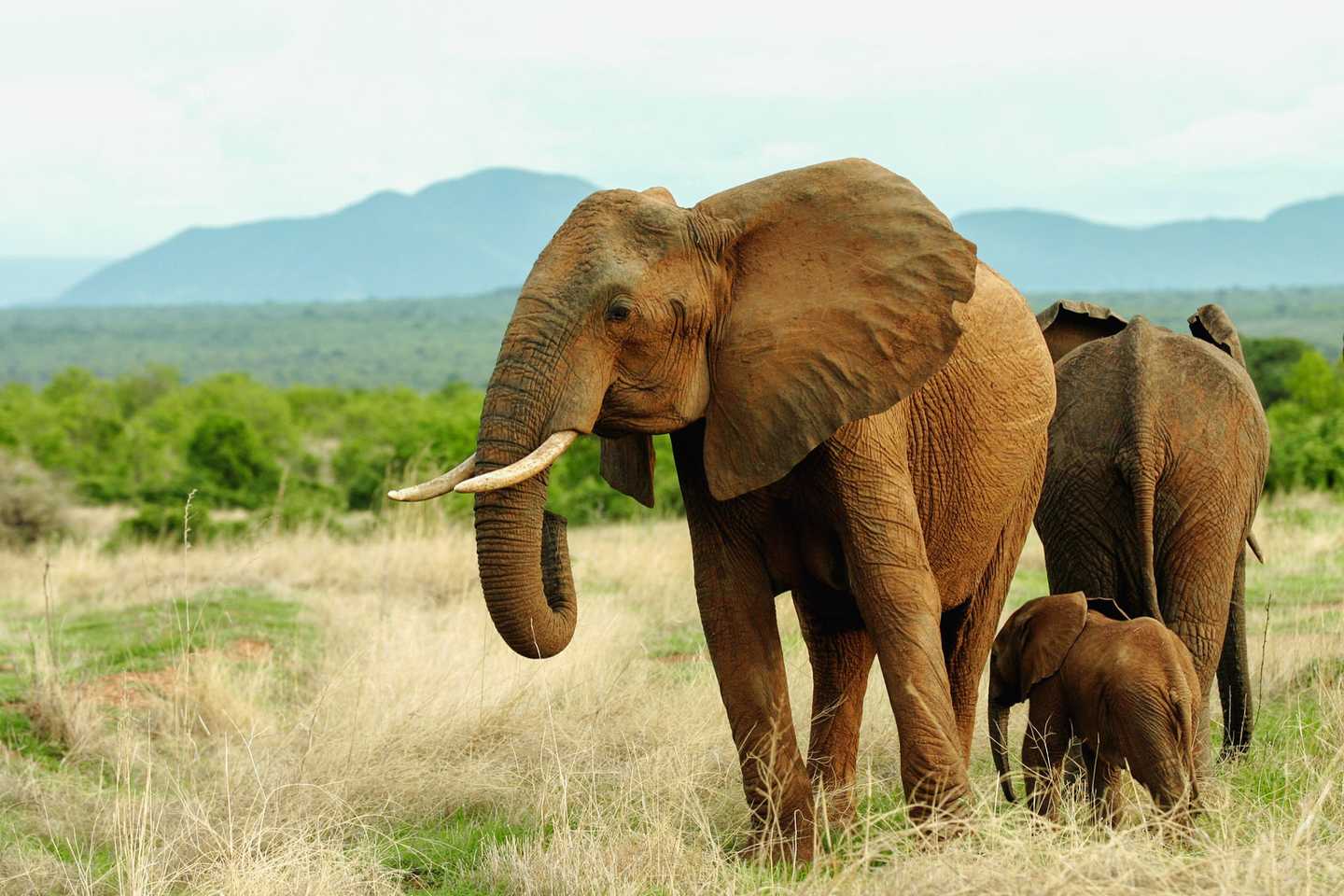
Elephants in Ruaha, Tanzania
We talk about isolated beautiful lodges and adventure experiences but it is the raw untamed wildlife of Africa that draws tourists; the prides of lion basking in the evening sun and the herds of elephant crossing the path in front of you as you hold your breath. It is these encounters that make a safari a truly extraordinary experience, that people of all ages can enjoy, telling tales of their adventures for years to come.
Without the team of experts working tirelessly behind the scenes, safari as we know it will cease to exist. The beautiful creatures we flock to see will be consigned to the pages of history and the great plains of Africa will empty before our eyes. A Formula 1 race-track, totally devoid of cars.
